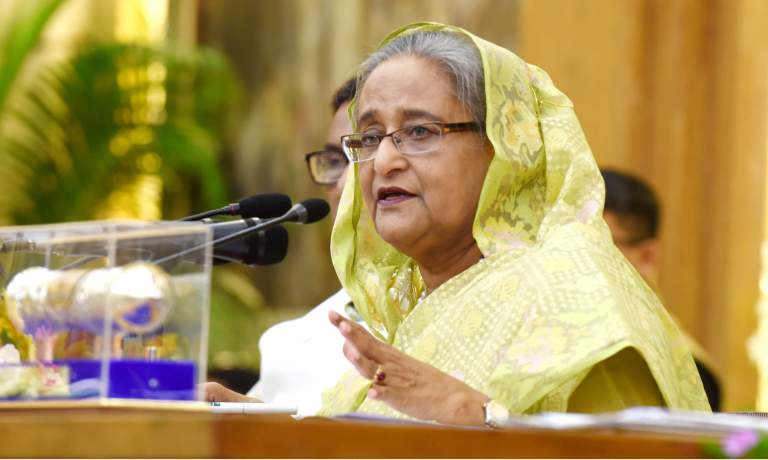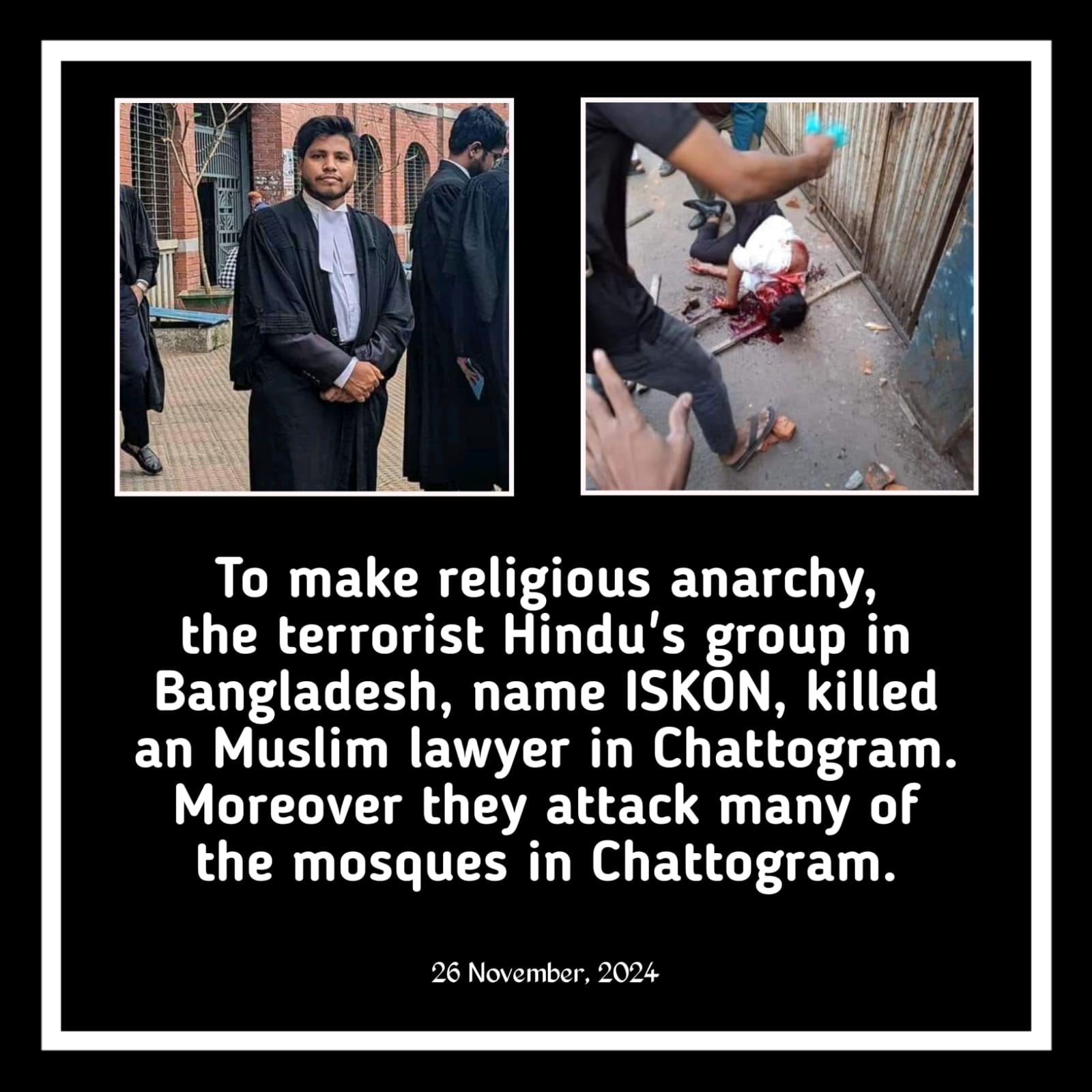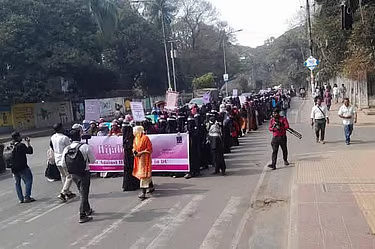. For many their country was finally free.
It was a historic moment for Bangladesh which had been engulfed in turmoil for weeks following a bloody crackdown on protesters. Since 15 July, scores of students had been shot at, tear-gassed, beaten and arrested by police and paramilitary forces for demanding a fairer system for obtaining valuable government jobs. Journalists, businessmen, teachers and construction workers were also among the dead.
While the government’s crackdown briefly brought protests to an end, they reignited on 4 August and culminated the following day with 76-year-old Hasina fleeing by helicopter to India and officially resigning.
Against the backdrop of celebrations, the dead continue to be counted. Current estimates put the number at more than 300. The number injured is in the thousands.
Hours after Hasina resigned, President Mohammed Shahabuddin ordered the release of jailed former prime minister Khaleda Zia and all students detained during recent protests.
Babu Ram Pant, deputy regional director for South Asia at Amnesty International had called the government’s response, a “shocking indictment of the absolute intolerance shown by the Bangladeshi authorities to protest and dissent”.
The UK’s Parliamentary Under-Secretary of State at the Foreign, Commonwealth & Development Office (FCDO), Catherine West, called the loss of life “unacceptable”.
The brutal violence from Hasina’s government was not unexpected, as a 2023 report from the FCDO shows. The UK government listed Bangladesh alongside countries like Myanmar, Syria and Libya on a “human rights priority” list, noting there has been continued “repression of opposition and civil society” and “intimidation by security forces”.
Yet despite clear concerns, the UK – under the Conservative Party, led most recently by former Prime Minister Rishi Sunak – saw Bangladesh as a lucrative market for arms sales. The Campaign Against the Arms Trade (CAAT) has tracked approval of arms export licences to Bangladesh totalling £270 million from January 2020 to the end of 2023. The highest proportion during that period was in 2023 when export licences totalled £106 million. Among those licences were small arms and ammunition.
The UK has been greenlighting arms exports to Bangladesh for many years, and as concerns over human rights have grown, so have the number of arms export licences. Ten years ago, the value of exports was £400,000; by 2019 they reached a high of £117 million.
Dr Samuel Perlo-Freeman, research coordinator at CAAT, called it “alarming” that the UK had been exporting high levels of arms despite an “increasingly repressive” government.
He told Byline Times: “The best time to have stopped arms sales to Bangladesh would have been years ago, as the country’s human rights record deteriorated, but the second-best time is now.
“Particularly concerning is the licencing of the export of 200 sniper rifles for military end use in December 2022, and an open licence in 2022 for potentially unlimited quantities of machine guns, artillery, and ammunition. These licences remain within their period of validity, and should be revoked immediately if still extant.”
The British Government claims it “operates one of the most robust arms export control regimes in the world”. Its Strategic Export Licensing Criteria, under which all arms exports are assessed, states licences should not be issued if there is a “clear risk” arms exports might be used in a “serious violation of international humanitarian law”.
However, it regularly comes under scrutiny for approving sales to countries on its own human rights “priority countries list”. It has also faced numerous legal challenges and is currently under pressure to suspend arms sales to Israel, which is waging an unrelenting assault on Palestinians in Gaza resulting in a litany of alleged war crimes; from attacking schools, hospitals and refugee camps to using starvation as a form of warfare. On Tuesday, The Guardian reported that arms export licences to Israel had been suspended pending a wider government review.
An earlier decision last month by the new Government to defer a decision on suspending arms to Israel was labelled by several rights groups, including CAAT, as “unconscionable” and “at total odds” with Britain’s moral and legal responsibility. The new Government also recently named Israel is one of a number of countries it is seeking to prioritise stronger trade ties with.
Dr Perlo-Freeman continued: “This is especially true of major customers such as Saudi Arabia, where the burden of proof applied is practically insurmountable, but even in cases such as Bangladesh, they rarely if ever take a precautionary approach.”
The UK’s support for Bangladesh and Hasina’s authoritarian regime has not been limited to arms sales. Among the array of security forces sent to suppress protests and given “shoot-on-sight” orders in July, were the country’s anti-terror and paramilitary force known as the Rapid Action Battalion (RAB).
This unit has been given training by the British Government as far back as 2008, despite extensive reports of the group being involved in murder, torture and enforced disappearances. Some have labelled the RAB a “death squad”.
Early details of the UK’s willingness to offer training to the RAB emerged in December 2010 in a series of diplomatic cables published by Wikileaks. In a cable dated 14 May 2009, US Ambassador James P Moriarty states the “British have been training the RAB for 18 months in areas such as investigative interviewing techniques and rules of engagement”. It came shortly after a previous cable dated 11 August 2008, where the ambassador says the US Government’s ability to offer similar training would be “constrained by the RAB’s alleged human rights violations”.
At the time, the Foreign Office defended the training, claiming it was “fully in line with our laws and our values”. However, a legal challenge was mounted by Phil Shiner of Public Interest Lawyers who condemned the UK’s “hypocritical approach to torture and unlawful killings” and called it a breach of international law.
Reports of brutal tactics being used by the RAB continued in the ensuing years, including in 2013 when Human Rights Watch reported the unit had opened fire on protesters, bystanders and children. In some cases, to prevent families from holding the force to account family members were then charged with the murders. In 2017, Swedish Radio also revealed a secret recording of a high-ranking RAB officer admitting to committing murders and then planting weapons on victims.
By 2021, the US Treasury imposed sanctions against several members of the RAB “for being a foreign entity that is responsible for or complicit in, or has directly or indirectly engaged in, serious human rights abuse”. The British Government did not follow America’s lead and failed to impose any sanctions against the force.
Instead, in 2022 it was discovered members of the RAB were invited to the UK twice for training in cyber security and mass surveillance equipment; specifically, in the use of a backpack ‘IMSI catcher’, capable of intercepting phone calls and text messages.
This training appears to have been carried out despite the FCDO having raised serious concerns about Bangladesh’s Digital Security Act, which has been used to bring cases against critics of the government through the interception of digital communications.
The act proved so controversial that it was scrapped at the end of 2023 but later replaced with the Cyber Security Act, which Amnesty International says is simply a “replication” of the previous law.
“Authorities can use IMSI catchers to identify who was at a protest, by capturing the IMSI numbers of all the phones that were in its vicinity and target them as a result, explained Ilia Siatitsa, program director at Privacy International. “We have been fighting for transparency and stronger regulation of the use of IMSI catchers by law enforcement in the UK since 2016 and yet they continue to use such technologies in secret and without appropriate legal framework. It is extremely concerning that the UK is facilitating the acquisition and use of such intrusive technologies by other authorities across the globe.”
While it is unclear whether the UK has allowed the sale of IMSI catchers to Bangladesh, records show the UK has greenlit exports of “telecommunications interception equipment” and components to Bangladesh. This includes four temporary licences in 2015/2016. There was also one permanent licence issued in 2023 for “information security equipment” and software. Dr Perlo-Freeman said this was unlikely to cover IMSI catchers but this broad description includes “equipment and software for surveillance and interception”.
In a comment made prior to Hasina’s resignation, a Foreign, Commonwealth and Development Office spokesperson told Byline Times: “The UK government does not provide any kind of support to the Rapid Action Battalion. We are deeply concerned by the continued violence in Bangladesh and call on all sides to find ways to restore calm.”
When asked if the FCDO is considering following the US and sanctioning members of the RAB, it said it would not “speculate” on future sanctions.









